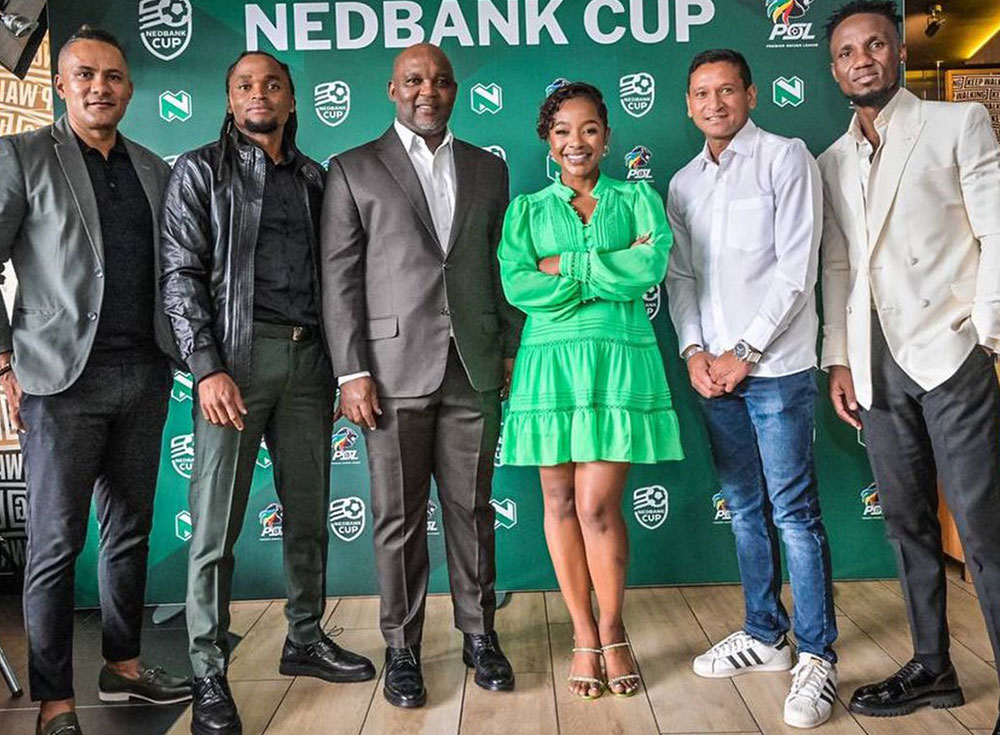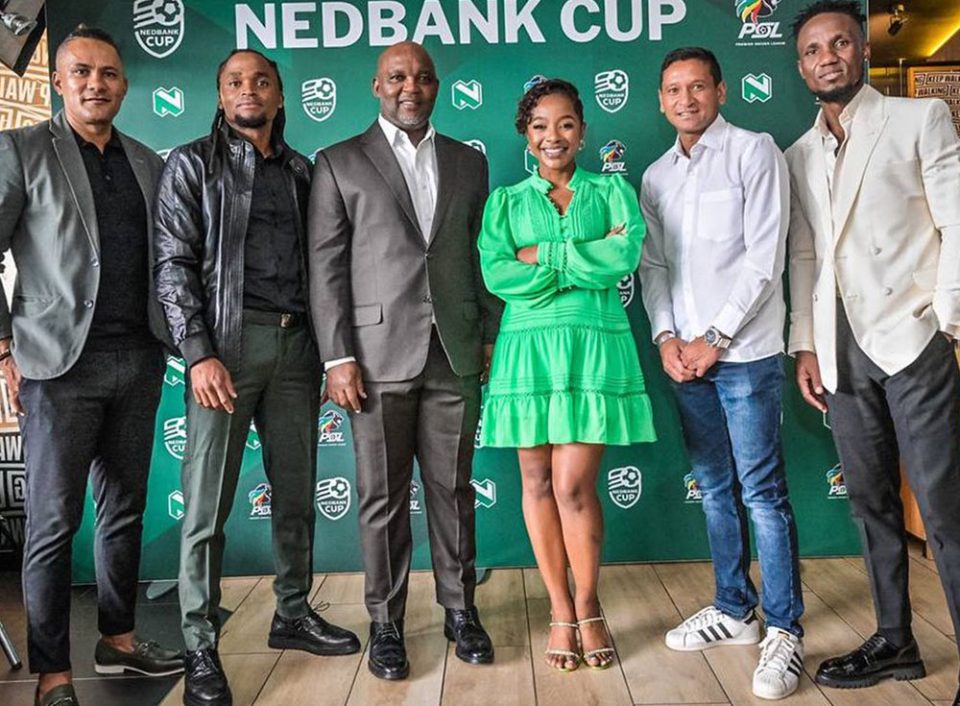
Pitso Mosimane was recently unveiled as a new Nedbank Cup ambassador along with several of his former players at Konka, Pimville Soweto.
There is no better person to provide sage advice to young players about how to look after their finances than Mosimane, who also highlights the professionalism needed on and off the pitch to secure their financial freedom beyond their playing days.
Mosimane is a legend in the local game, both as a player and a coach, and has seen everything there is to see on the domestic scene.
In recent years he has also been flying the flag abroad, taking Egyptian giants Al Ahly to the CAF Champions League title and now working in Saudi Arabia with Al-Ahli Jeddah, so has the perfect among of experience and perspective to be a Nedbank Cup ambassador.
You have always been a advocate of players looking after their finances while playing, so they can sustain themselves when their careers are over …
Pitso Mosimane: You should not have a situation where the car you are driving costs more than your house. I used to coach and make sure that my players have a home. A car is just a mode of transport, at the end of the day, but a house is more important. I tell my players to look after themselves, look after their children and to empower themselves, so that they can make more money.
We have heard stories from your fellow ambassadors Teko Modise, Daine Klate, Stanton Fredericks and Siphiwe Tshabalala about the trials that players go through, but also how you personally assisted some of them …
I’m humbled, first by the ambassadors and what they are speaking about. I think we have true ambassadors who have travelled, who have been around the football space, but also who have done very well with their finances. As I always say, ‘you first coach the human being before the footballer’. They have done very well and some of the stories that they are telling here reminds me of the days when I was fighting with (some of) them about how to look after their finances.
You were a hugely successful player and coach in local football, but have also proven yourself abroad, first in your playing days and now as a coach. Is it important for players or coaches to push their professional boundaries?
I don’t want to sound controversial, but when it comes to football in our country, there is a lot that needs to change. Also, players must get the education of what is happening outside and what is happening here at home. Some of the things I know and I see out there, I can’t say a lot because I will be in trouble with football people who will say you are now telling players to leave the country. South African players don’t know how good they are, they don’t know what they are worth.
Can you explain that a little more?
They don’t know, but they are worth more, and it is the same with the coaches. Maybe I speak from a different position now, but I also didn’t know that a South African coach can contribute outside the country and be renumerated with the value of what you do. Sometimes I was told you can’t earn this money, but there is money and I found people who said we can give you more than that. It was an eye opener, and unfortunately players don’t know about that. If players know they can earn more and get better competition, it will be good for Bafana Bafana, and that is important. South African players don’t know they can earn more money and be millionaires.
Why do you think that is?
They are focused here (South Africa), but I don’t blame them because there is no information that can be passed on to them. Sometimes they are told, but they don’t listen. Sometimes I look at a player and say, ‘this is a good footballer, doesn’t he know how much he can earn and change the live of his family?’ But they will say you are influencing them, and it is so sad, even with the coaches. I see coaches outside (South Africa) that don’t give the value that our coaches here can give, and we settle for what we have because sometimes we are afraid to jump. I am a guy who jumps, I don’t like to be in the same space and do the same thing every day.
There is obviously a symbiotic relationship between players and coaches …
Yes! (Early in my coaching career) I brought Daine Klate from the School of Excellence and Teko Modise from Polokwane City Pillars. When I started SuperSport United, I didn’t have a budget and I signed young players, and they made my life and my career.
The story of your former Mamelodi Sundowns player Khayelihle Shozi is a well-documented one, with the player now reportedly living on the streets …
The Khaya Shozi story, I saw it on social media. I was really surprised to be honest, how can a person deteriorate so quickly? I mean he is a youngster and can still play. He is not even over 30 (he’s 28). So, the only thing I can do to help Khaya is to give him an opportunity to be part of the (the Pitso Mosimane) schools’ programme. I don’t know if he wants to coach, but if he wants to be a coach, he can come there. He is welcome. He has to go through, do the SAFA D License because we have a good relationship with the technical director of SAFA, Walter Steenbok, who is doing a very good job. Khaya can come to our programme, we will train him as a coach, and we will put him as a coach. And he can start his life, earn a living in our programme, and earn a salary as a coach.
INFO SUPPLIED.
m


